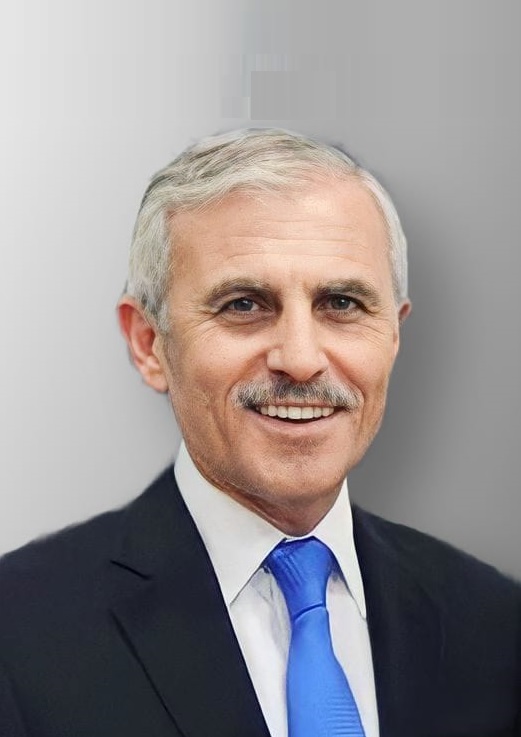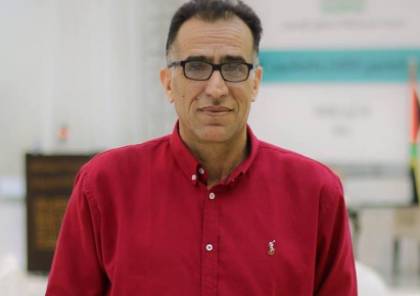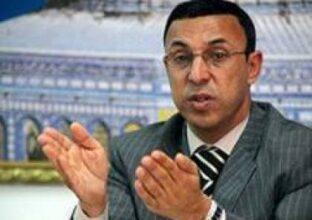Social cohesion a lifeline for survival
Al-Khamisa News Network - Gaza

Author: Jamal Zaqout
Escalation of genocidal and liquidation crimes
The crimes of the Israeli occupation have reached an unprecedented peak against our Palestinian people, both in the form of escalating genocidal acts, mass displacement and starvation, and in targeting all elements of civilian life in the Gaza Strip — where the Gaza Health Ministry said the death toll has exceeded 65,000 and more than 139,000 have been injured as of September 2025 (OCHA – United Nations update) — and in the systematic expansion by the settler–annexationist government of its fascist plans for annexation, through further seizure of land, water and other means of livelihood aimed at undermining people’s ability to remain across the West Bank, including Jerusalem. All of this is taking place in full view and hearing of the world, particularly decision-makers in Washington and other Western capitals, underscoring Washington’s direct involvement in plans to liquidate the Palestinian cause, with no tangible or effective European response to halt this human and political slaughter of an entire people.
Is there any hope for a change in the Arab position?
The Doha summit failed to take practical steps capable of realigning mutual interests with Washington in a way that would put an end to these crimes and to schemes that now extend beyond Palestine and its people, exposing the true nature of Zionist–American ambitions for what is called a “Greater Israel.” What the summit produced reflects the absence of any serious Arab project at a time when Washington and Tel Aviv are redrawing the region’s borders and attempting to subject it to the security and political hegemony of a Greater Israel. It also reveals the severe erosion in the structure and role of the Palestinian national movement and its inability to formulate a unified national position amid geopolitical changes, which could have served as a lever for an Arab stance commensurate with the challenges facing the Palestinian cause and the region as a whole. Nonetheless, the extent of Israeli ambitions in the region may leave it open to various possibilities.
Crisis of Palestinian leadership and the decline of the national project
The urgent question for us Palestinians has gone beyond abstract debate about the priorities facing the Palestinian leadership. The course of the war of extermination and liquidation over two full years has demonstrated how keen this leadership is to distance itself from the repercussions of the Gaza genocide or from the accelerated Israeli steps to settle the conflict in and on the West Bank. This reality requires abandoning any illusion that it can be changed without activists rolling up their sleeves and moving toward tangible initiatives that help reinforce people’s resilience and survival — the top priority for our people, inseparable from the absolute priority of stopping the genocide and the sustained struggle with the people to nullify its direct and strategic effects alike.
The heritage of struggle and traditions of mutual aid
In this context, the Palestinian people’s heritage of struggle contains tangible values of mutual aid traditions dating back to before the Nakba, as well as successful experiences that played a decisive role in strengthening Palestinian resilience for decades. The lessons produced by the First Intifada were crucial in absorbing and overcoming the collective punishments intended to subdue Palestinians and break the will of activists across different popular sectors. The secret of its resilience was the innovation of creative forms of family solidarity and social support. While elements of the national movement were the catalyst for such initiatives, objective necessity transformed the frameworks of these initiatives into a mass movement and popular action that went beyond the traditional tools of the forces at the time, becoming an effective network and an advanced bulwark against occupation schemes and collective punishments.
Breakdown of the social fabric and economic crises
It is clear that the deterioration of economic conditions and its social impact — including the continuing decline in the ability of Palestinian Authority institutions to deal with its consequences, whether due to the aims of the fascist settler government, including targeting the Authority itself, or owing to the nature, role and alienation of these institutions and their inability to meet popular needs — requires thinking about measures, however simple, to try to fill the growing vacuum that dangerously contributes to the disintegration of the social fabric and the strengthening of a culture of individual salvation. This culture was, regrettably, the most dangerous outcome of the Oslo process, resulting from the decline of the collective project of the national movement and the dominance of factional and individual interests over what was known as the national project. Data from the Palestinian Central Bureau of Statistics (April 2025) indicate that the unemployment rate in Gaza reached about 68%, while it rose to 31% in the West Bank, deepening social crises and pushing more families into poverty.
Terror of armed settler militias
The government of terror and fascism is effectively deploying every available tool to settle the conflict. In addition to the military, political and economic support and the “legal” cover provided by Washington, this government has succeeded in creating armed settler militias that carry out daily terrorist attacks, while most of what is called “Area C,” particularly the Jordan Valley, is being taken over through what is called pastoral settlement. Attacks by settlers have escalated, including on roads connecting Palestinian cities, which have come under comprehensive control regimes that tear apart the unity and cohesion of the West Bank’s areas. Such a policy, which seeks to impose geographic facts on the ground, will also produce economic repercussions and social crises that encourage the search for individual solutions in the context of silent displacement, before the Tel Aviv government attempts to settle the matter by carrying out broad-scale forced displacement.
Social solidarity initiatives as a lever for survival
The question here, without absolving official institutions of their duties, is whether community structures — represented by civil society institutions, the private sector, sectoral movements and popular committees in the camps — have begun to sketch even preliminary outlines of engagement in wide-ranging campaigns of social solidarity at all possible levels and using available local resources? This is against the backdrop of a crippling unemployment crisis, rising poverty rates and public-sector employees not receiving full salaries for years, taking into account the social responsibilities of those employees not only toward their immediate families but their extended families as well.
Solidarity: a duty and a legal right
The time has come for all forces, groups, institutions, personalities and activists, across different regions, to devise measures suited to the reality and capacity of each area. The essence of these measures is not only to restore the values and role of social solidarity and preserve the social and national fabric, but also to revalue collective action as the most important lever in confronting a plan to dismantle and liquidate not only the national cause but, fundamentally, the social fabric’s ability to endure and survive. Launching such initiatives and expanding their scope could provide a model capable of reviving networks of mass and social action, linking national and social tasks, and contributing in the not-too-distant future to shifting the popular movement and its active forces from advocacy and influence to the capacity to effect change — perhaps even rebuilding the national movement and enabling it to thwart the Zionist plans that target everyone without exception.
Remaining on the land is the cornerstone of confronting these schemes and the essential measure of defeat and victory in the course of the struggle against the Zionist project. Solidarity and social support are not only a moral or humanitarian duty but a right of legitimate defense of existence. Activating support and social solidarity networks, documenting violations, popular resistance, a gradual move toward civil disobedience against the occupation, and strengthening cooperation and joint work with forces of peace, democracy and humanitarian justice and with committees of solidarity with the Palestinian people — all of this, within the noble goals of freedom and liberation from occupation, are necessary tasks and lawful tools to protect inalienable rights, foremost among them the right of return and self-determination, as affirmed by United Nations resolutions, most notably Resolution 194.






